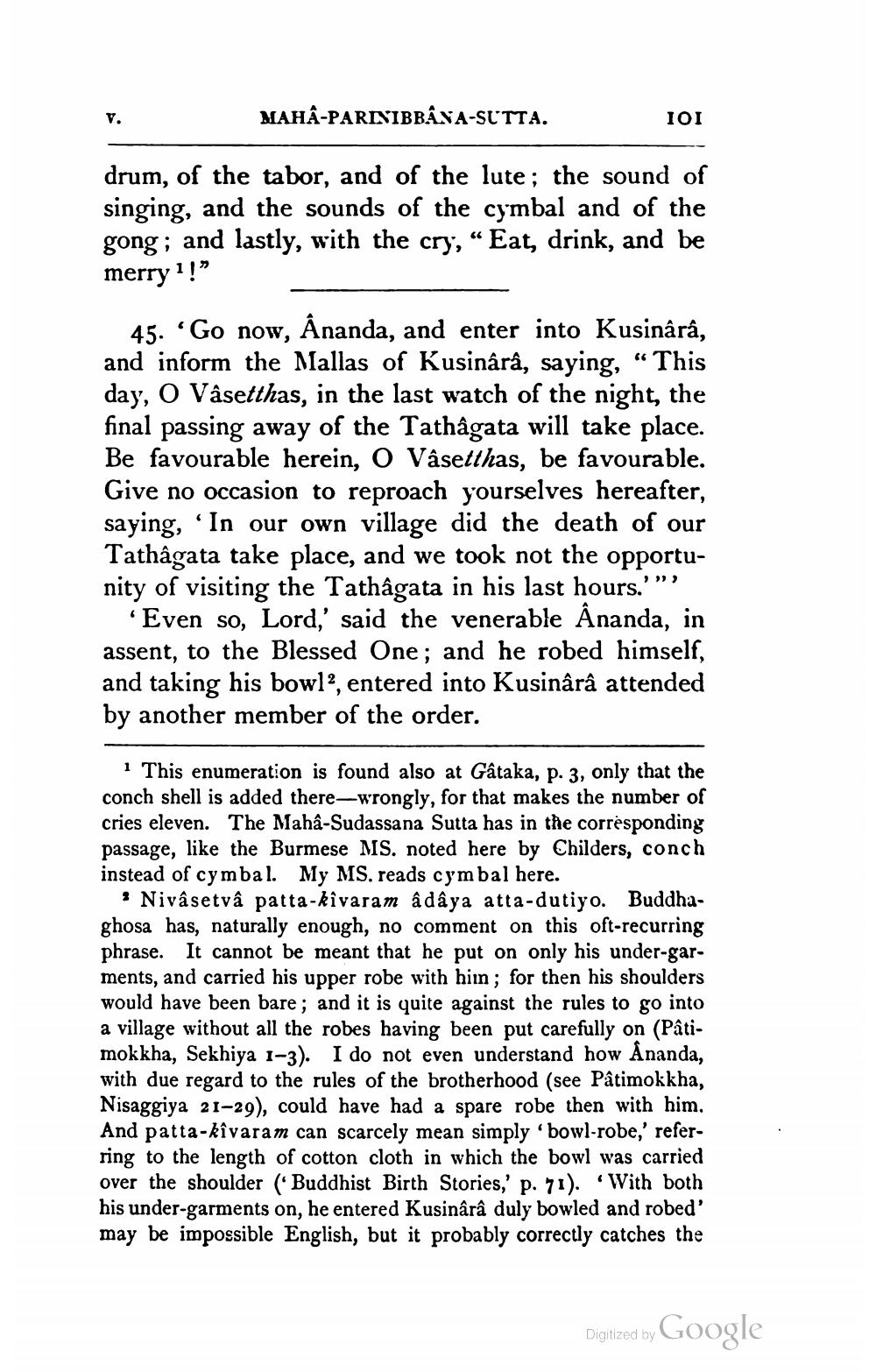________________
MAHA-PARINIBBANA-SUTTA.
IOI
drum, of the tabor, and of the lute; the sound of singing, and the sounds of the cymbal and of the gong; and lastly, with the cry, “Eat, drink, and be
merry 1!"
45. 'Go now, Ananda, and enter into Kusinârâ, and inform the Mallas of Kusinârâ, saying, “This day, O Vâsetthas, in the last watch of the night, the final passing away of the Tathagata will take place. Be favourable herein, O Vâsetthas, be favourable. Give no occasion to reproach yourselves hereafter, saying, “In our own village did the death of our Tathâgata take place, and we took not the opportunity of visiting the Tathagata in his last hours.'”
'Even so, Lord,' said the venerable Ananda, in assent, to the Blessed One; and he robed himself, and taking his bowl?, entered into Kusinârâ attended by another member of the order.
1 This enumeration is found also at Gataka, p. 3, only that the conch shell is added there-wrongly, for that makes the number of cries eleven. The Maha-Sudassana Sutta has in the corresponding passage, like the Burmese MS. noted here by Childers, conch instead of cymbal. My MS. reads cymbal here.
Nivâsetvâ patta-kivaram âdâya atta-dutiyo. Buddhaghosa has, naturally enough, no comment on this oft-recurring phrase. It cannot be meant that he put on only his under-garments, and carried his upper robe with hiin; for then his shoulders would have been bare; and it is quite against the rules to go into a village without all the robes having been put carefully on (Pâtimokkha, Sekhiya 1-3). I do not even understand how Ananda, with due regard to the rules of the brotherhood (see Pâtimokkha, Nisaggiya 21-29), could have had a spare robe then with him. And patta-kîvaram can scarcely mean simply bowl-robe,' referring to the length of cotton cloth in which the bowl was carried over the shoulder (* Buddhist Birth Stories,' p. 71). With both his under-garments on, he entered Kusinârâ duly bowled and robed' may be impossible English, but it probably correctly catches the
Digitized by
Digitized by Google




